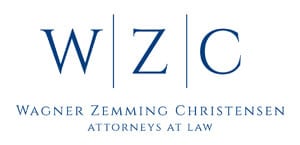Common Causes of Commercial Landlord-Tenant Disputes

You should have a well-prepared commercial lease to avoid potential disputes in the future. It should include terms outlining the responsibilities and roles of each party. If you don’t review the contract thoroughly, a breach in the contract or confusion about your landlord’s duties can lead to a lawsuit.
Below are the most common reasons for disputes between commercial landlords and tenants.
Maintenance and Repairs
Typically, landlords are responsible for maintaining commercial properties. They must ensure the proper upkeep of the leased space’s exterior areas and structural parts. If damage occurs, the landlord should repair it promptly. However, tenants must maintain all other areas.
Disagreements over who is at fault for a problem on the premises can lead to a legal dispute. Sometimes, landlords cause problems in parts of the building they must maintain but blame their tenants for the damage. As a tenant, you could dispute the problem if you believe your landlord is responsible for the poor maintenance or inadequate repair.
Withholding Rent
Tenants shouldn’t withhold rent because they risk facing eviction by their landlord. However, many tenants decide not to pay rent if their landlord violates the lease terms.
If you don’t pay rent because you want to dispute charges, deposit the withheld rent in an escrow account. Keep the money there until your landlord fulfills their obligations and responsibilities according to the lease agreement. Setting aside money for rent until the problem is resolved is an act of good faith, showing you plan to pay as long as your landlord does what they’re supposed to do.
Requirements to Renew or End a Lease
Many landlords include language in a lease agreement outlining the correct method of informing them of plans to renew or end a lease. Typically, tenants must provide written notice within a specific time before the end of the lease term, letting the landlord know what they want to do.
Commercial tenants often forget about the notice or don’t include the necessary information in the notice required by the lease terms. Failure to meet the lease’s terms can give the landlord the ammunition to charge penalties or kick the tenant off the leased premises.
Common Area Maintenance Charges
Commercial leases often include a Common Area Maintenance (CAM) charge. CAM expenses are all costs associated with owning and operating a project, including costs for property management.
The tenant pays the landlord a CAM charge to help cover operating and overhead expenses for common areas, such as:
- Lobbies
- Hallways
- Public restrooms
- Elevators
- Building security
- Parking lots
Disputes can arise if the landlord increases the charge significantly and the tenant doesn’t understand the costs they must pay. Requesting an itemized statement to show every expense might minimize confusion. However, litigation might be necessary if the landlord charges for things the tenant should not be responsible for paying.
Prohibition Clause on Assignment of Lease
An assignment of the lease allows a tenant to transfer the active lease to someone else. However, many landlords include a prohibition clause in the lease preventing their tenants from assigning it to another party. Sometimes, lease agreements explicitly state assignments are prohibited, while others contain confusing or vague language.
If you assign the lease to someone else because you close your business or can no longer afford the rent, ensure you follow the parameters of the lease. If the prohibition clause doesn’t allow for an assignment of the lease, your landlord could pursue action against you. However, you can fight litigation if your lease allows you to transfer your lease to a third party and you act within the lease terms.
Contact a Lease Litigation Attorney in Riverside Today
Since 2004, Wagner Zemming Christensen, LLP, has represented clients in commercial real estate litigation. A lease is a binding contract you and your landlord must adhere to. When your landlord fails to fulfill their duties, filing a lawsuit might be your only option to resolve the problem.
If you face a dispute with your commercial landlord, call us at 951-686-4800 for a consultation to learn more about how we can help.
